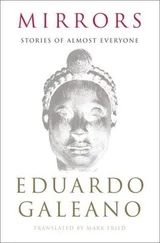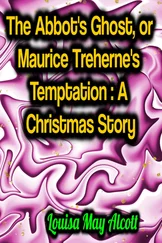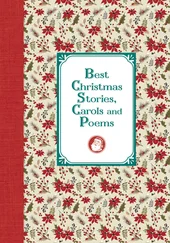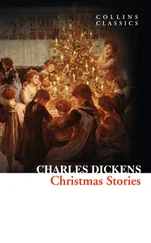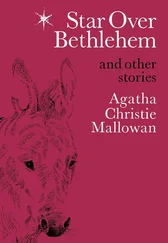Edward Berens - Christmas Stories
Здесь есть возможность читать онлайн «Edward Berens - Christmas Stories» — ознакомительный отрывок электронной книги совершенно бесплатно, а после прочтения отрывка купить полную версию. В некоторых случаях можно слушать аудио, скачать через торрент в формате fb2 и присутствует краткое содержание. ISBN: , Жанр: foreign_antique, foreign_prose, на английском языке. Описание произведения, (предисловие) а так же отзывы посетителей доступны на портале библиотеки ЛибКат.
- Название:Christmas Stories
- Автор:
- Жанр:
- Год:неизвестен
- ISBN:http://www.gutenberg.org/ebooks/35397
- Рейтинг книги:3 / 5. Голосов: 1
-
Избранное:Добавить в избранное
- Отзывы:
-
Ваша оценка:
- 60
- 1
- 2
- 3
- 4
- 5
Christmas Stories: краткое содержание, описание и аннотация
Предлагаем к чтению аннотацию, описание, краткое содержание или предисловие (зависит от того, что написал сам автор книги «Christmas Stories»). Если вы не нашли необходимую информацию о книге — напишите в комментариях, мы постараемся отыскать её.
Christmas Stories — читать онлайн ознакомительный отрывок
Ниже представлен текст книги, разбитый по страницам. Система сохранения места последней прочитанной страницы, позволяет с удобством читать онлайн бесплатно книгу «Christmas Stories», без необходимости каждый раз заново искать на чём Вы остановились. Поставьте закладку, и сможете в любой момент перейти на страницу, на которой закончили чтение.
Интервал:
Закладка:
[d]See Note [D.]
The bad success of the last expedition, and the loss of strength which they had sustained, kept the gang of plunderers comparatively quiet. Jack Wildgoose, however, and Black Will, again took to their old practice of wiring hares [e]; and contrived to dispose of a considerable number. The keepers were aware of it, but somehow could never manage to come upon them exactly at the right time. One Sunday morning, when Jack had gone round to examine into the state of his snares, and had just taken up a hare with the wire round its neck, Stokes the under-keeper, who had been concealed on the other side of the hedge, suddenly started up, and caught him in the fact. An information against him was immediately laid by one of Stokes's fellow-servants; a summons was procured; and John Wildgoose appeared at the Justice meeting, which took place next day.
[e]See Note [E.]
The information having been read, and Wildgoose having pleaded not guilty, the keeper was sworn, and began to give his evidence. Being asked at what hour in the morning the transaction took place, he replied, "A little after seven: for I had heard the great clock at Sir John's strike a few minutes before." "That's false, however," said a voice from the crowd, which was assembled in the Justice room. "Come forward there," said one of the Justices; when who should make his appearance but Black Will. The magistrate told him not to interrupt the witness, but that if he had any thing to say, he should state it upon oath when the keeper's evidence had been gone through. This was soon done; and then Atkins being sworn, and desired to state what he knew of the business, replied, "I know but little about it; but this I can say, before seven on Sunday morning Jack Wildgoose and I started together to see a friend at Hollybourn, which your Worship may perhaps know is about six miles off. We went to church there, and did not get back till the afternoon. So how Jack can have been wiring hares after seven I don't very well know." The Justices looked surprised, as the under-keeper had the character of being an honest, truth-telling man. Wildgoose himself said nothing. Mr. Hale, who acted as chairman, was beginning to put some questions to Stokes, in the hope of finding something either to confirm or to weaken his testimony, when an elderly man in a smock frock came to the bar, and said, "I should be as glad as any one to have the young man got off, both for his own sake, and for the sake of his good mother; but I cannot stand by in silence, and hear a man take such an audacious false oath as that sworn by Will Atkins. Why you know, Will," continued he, "that you skulked by the Fighting Cocks soon after seven; I was afraid that you were about no good, and if the gentlemen won't believe me, I can name another who saw you as well as I." This was old Truman, who had got a lift in Tomkins's cart for the sake of hearing the proceedings, but without the most distant thought of taking any part in them himself. His high respect for the name of God, and his general love of truth, compelled him to speak against his own wishes.
The fact was this. Atkins, who had gone to meet Wildgoose on the Sunday morning, in order to receive from him the hares which he had snared, heard that he had been detected, and almost immediately determined to try the chance of setting up an alibi . For himself, as he had not the fear of God before his eyes, he cared not whether what he swore was false or true, so that it answered his purpose. He therefore had directed Wildgoose, though without telling him his intention, to keep close at home, and let no one see him; and had hastened himself to get out of the village, unobserved as he thought by any one.
When Truman spoke, Black Will turned pale with vexation and rage, and darted at the old man a look, which said that he longed to strike him to the earth. When Truman, however, had repeated his statement upon oath, Atkins endeavoured to get out of the scrape as well as he could, and stammered out something about mistaking the hour. Mr. Hale the chairman gave him a most serious reprimand. He told him, that "the deliberately calling upon the God of truth to bear witness to a falsehood, was daring the Almighty to his face. That, as the property, the good name, and even the lives of men depended in great measure upon preserving the proper respect for an oath, the man who wilfully took a false oath deserved to be banished out of all civilized society; he added, that he hoped Sir John would indict him for perjury." He then proceeded to convict Wildgoose. "The penalty," said he, "for using engines for the destruction of game, on other days, is, as you know well enough, five pounds. But as your offence was committed on the Lord's Day, the penalty is any sum that we think fit, provided it is not more than 20 [English Pound] nor less than 10 [English Pound]. In compassion to your mother we will fix the lower sum. This it is our duty to sentence you to pay. If you cannot pay it, and have not goods which we can distrain, you must go to prison." Wildgoose answered that as for the penalty, he neither could nor would pay it: that he had no goods, as he was only a sort of a lodger in his mother's house, and that he had as soon go to prison as not. He knew that there he should have plenty to eat and little to do. In this last supposition he was mistaken, as the magistrates had, though with some difficulty, contrived to find work enough to keep the prisoners continually employed. The parish constable, under whose care Wildgoose was, said, that of his own certain knowledge he was able to confirm the truth of his statement as to his having no goods to distrain. The commitment therefore was made out, and Jack was sent off to the county gaol.
Lightly as he had talked of going to prison, yet he felt a good deal when actually on his way thither; and when he saw the high walls, the grated windows, the narrow cells, – still more when he heard the clank of the fetters of some of his fellow prisoners, who were confined for heinous offences, his soul sank within him. He was shocked too and mortified at being required to put on that token of disgrace, a prison dress. He did not, however, remain there long. His poor mother was thunderstruck at hearing that her son was really sent to prison, and lost no time in endeavouring to get money enough to pay the fine in order to procure his freedom. She had hardly any money in the house; but her neighbours were ready to lend her what they had by them; and four pounds, being the whole of her savings in service, were eagerly and freely given by Lucy Wilmot, a well-behaved young woman, to whom Jack Wildgoose had for some time been attached.
Mrs. Wildgoose could not bear to be in debt; and as she never was able to do much more than just maintain her family, she knew that she must deny herself and her children every little indulgence in order to repay her kind neighbours. But she thought that any thing was better than suffering her son to remain in prison, in the society, it might be, of depraved and abandoned characters.
The penalty having been paid, Jack was immediately set at liberty. He felt a little abashed at first coming home; but the kind manner of his mother, who, though her heart was full of grief, would not utter the least reproach, relieved him. Jack soon observed in a variety of little things a change in his mother's manner of living. She had been accustomed, for instance, to give her children a bit of meat baked with a pudding on Sundays. When, instead of this, nothing made its appearance but some potatoes and dripping, with bread and cheese, the girls looked disconcerted, and Sam cried out, "Why, mother, what's become of the meat and pudding? This is no better than a working-day's dinner." Mrs. Wildgoose told them, that she could not at present afford to give them a better, and they should be thankful for what they had. John knew well enough the meaning of this, and, to do him justice, felt a good deal. Often did he now wish that he had in his pocket again those many shillings and sixpences, which he had uselessly spent at the Fighting Cocks.
Читать дальшеИнтервал:
Закладка:
Похожие книги на «Christmas Stories»
Представляем Вашему вниманию похожие книги на «Christmas Stories» списком для выбора. Мы отобрали схожую по названию и смыслу литературу в надежде предоставить читателям больше вариантов отыскать новые, интересные, ещё непрочитанные произведения.
Обсуждение, отзывы о книге «Christmas Stories» и просто собственные мнения читателей. Оставьте ваши комментарии, напишите, что Вы думаете о произведении, его смысле или главных героях. Укажите что конкретно понравилось, а что нет, и почему Вы так считаете.

